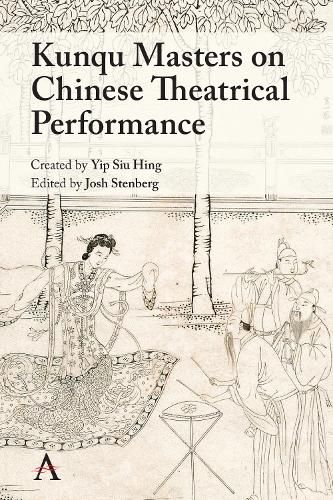Readings Newsletter
Become a Readings Member to make your shopping experience even easier.
Sign in or sign up for free!
You’re not far away from qualifying for FREE standard shipping within Australia
You’ve qualified for FREE standard shipping within Australia
The cart is loading…






Kunqu, recognised by UNESCO in 2001 as part of the Intangible Cultural Heritage of Humanity, is among the oldest and most refined traditions of the family of genres known as xiqu (music-drama or Chinese opera ). Today, the art form’s musical and performance traditions are being passed on by senior artists in several major cities of the Yang-tze River basin as well as Beijing. This book consists of twelve explanatory narrations, selected and translated from among an expansive collective endeavour in Chinese. Each performer narration sheds light on the human processes that create and transmit pieces of theatre, allowing actors’ voices to be heard for the first time in English. Meanwhile, annotations place these narratives in historical, literary, discursive, and aesthetic contexts. Close critical attention shows how concepts such as tradition are in fact the sites of constant elaboration and negotiation and reveal kunqu as a living and changing art form. Methodologically, this work breaks new ground by centering the performers’ perspective rather than text, providing a complement and a challenge to performance-analysis, ideological, sociological, and plot-based perspectives on xiqu.
$9.00 standard shipping within Australia
FREE standard shipping within Australia for orders over $100.00
Express & International shipping calculated at checkout
Kunqu, recognised by UNESCO in 2001 as part of the Intangible Cultural Heritage of Humanity, is among the oldest and most refined traditions of the family of genres known as xiqu (music-drama or Chinese opera ). Today, the art form’s musical and performance traditions are being passed on by senior artists in several major cities of the Yang-tze River basin as well as Beijing. This book consists of twelve explanatory narrations, selected and translated from among an expansive collective endeavour in Chinese. Each performer narration sheds light on the human processes that create and transmit pieces of theatre, allowing actors’ voices to be heard for the first time in English. Meanwhile, annotations place these narratives in historical, literary, discursive, and aesthetic contexts. Close critical attention shows how concepts such as tradition are in fact the sites of constant elaboration and negotiation and reveal kunqu as a living and changing art form. Methodologically, this work breaks new ground by centering the performers’ perspective rather than text, providing a complement and a challenge to performance-analysis, ideological, sociological, and plot-based perspectives on xiqu.